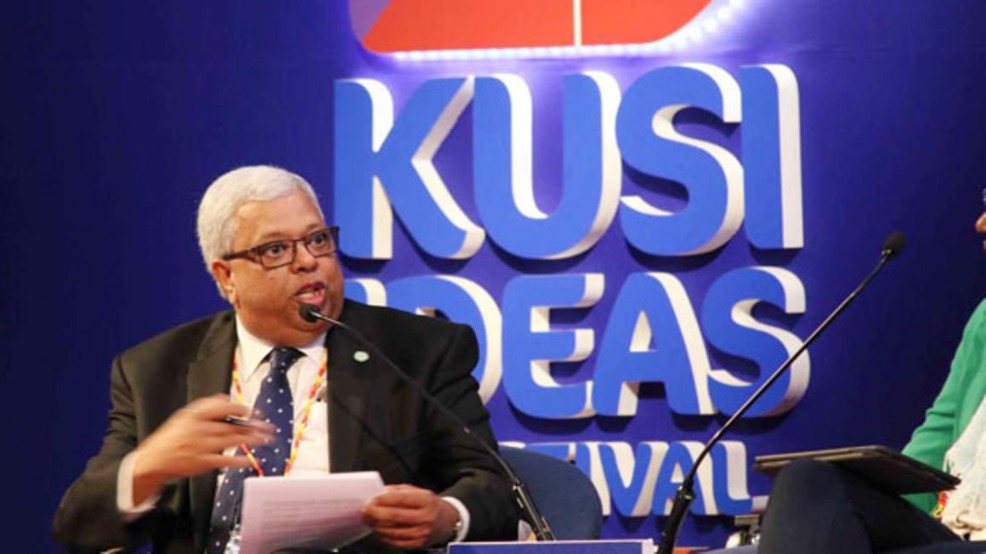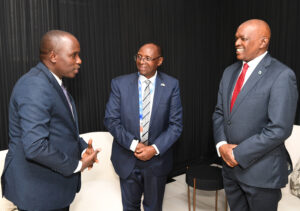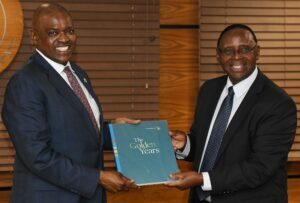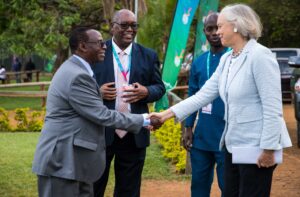African Media Initiative and African Media Leaders Forum Senior Advisor Sarwat Hussain was among the panellists who discussed ‘Feeding the billions: Growing the food, paying for it, and who will or won’t eat’ during Kusi Ideas Festival in Kigali, Rwanda. PHOTO | FILE | NATION MEDIA GROUP
The recently-concluded Kusi Ideas Festival organised by Nation Media Group brought together leading politicians, bureaucrats, corporate heads and academics from Africa. The choice of Kigali to host the conference was not a coincidence. Rwanda has come to represent the new Africa.
In a few years, the tiny country with a bloody history has come out on top in almost every category — healthcare, education, IT, agriculture, security, order, among others. These achievements could not have come about without a paradigm shift in the way Rwandans think of themselves.
They had to abandon the fatalistic view of the future and instead begin to believe they could shape it. They stopped being fearful of taking bold steps. They began to have the confidence to innovate unique solutions to unique problems. They ceased having low expectations of themselves and their leadership. They stopped measuring themselves against failed states. Instead, they set themselves the highest possible standards.
The reason for Rwanda’s transformation from a nation that symbolised death to one that symbolises hope and resilience is simple. It is something Paul Kagame talks about all the time — a change of mindset. Africa, he says, has everything she needs to succeed, but she must change her mental attitude.
And so the Kusi Ideas conference wanted to reflect and capture the spirit of Rwanda. The conference explored ways and means how Africa could chart its socio-political and economic course in the next 60 years.
There was none of that increasingly redundant explanation of our problems as a result of sinister neo-colonial machinations of the West. There was no specious rationalisation of corruption or the inefficiencies of our bureaucracies or the lack of strategic planning or our scorched-earth politics in which politicians burn the country on a mad rush to gain power.
Instead, the conference bristled with bold plans and innovative ideas. There were honest conversations about our shortcomings. There was the Rwanda spirit of “we can own the future by our actions”. A new Africa — in terms of thinking and attitude — was being defined.
The conference proved that there was no shortage of brilliance and innovation in Africa. However, there is a shortage of the kind of leadership that can harness that brilliance and innovation into a coherent national development strategy.
The old leadership abounds in Africa and continues to nurture and perpetuate the old thinking and attitude. I was reminded of this sad fact when listening to an interview on TV of a leading presidential candidate.
The politician — Musalia Mudavadi — had just released a memoir about his 30-year journey in politics. The interviewer asked him why he stayed on as a minister in the despotic Kanu regime when other politicians and citizens were risking everything to bring a new dawn. His answer: Family friendship ties with Moi and intimidation. He was pressed about his achievements as a long-serving minister in the Kanu regime. He answered that he had greatly improved the economy. Then he went on to say that one of Moi’s achievements was that he agreed to hand over power to the incoming NARC government that won the 2002 elections when he could have elected to stay on.
True leadership is taking painful and often dangerous decisions in the interests of the common good.
In Long Walk to Freedom, Nelson Mandela talks of how he, a man who loved family life, who loved his young beautiful wife, who cherished quiet reflections or reading in the evenings, took on the dangerous life of a fugitive as the “Black Pimpernel”. He took that decision knowing that if captured, it would be the noose.
Another characteristic of true leadership is honesty. The economy of Kenya under Kanu, due to theft on an epic scale, was on its knees. It was actually the NARC government that rescued it from total collapse.
Lastly and most importantly, a leader must teach citizens to have high expectations of themselves and their leadership. He must measure himself and his country’s achievements against the highest possible performance standards.
Rating former President Moi’s handing over of power after defeat in an election as a great achievement is the lowest possible measure of success. It is akin to saying, “I have achieved great success because I’m not dead!” Tragically, that is the standard against which Africa has been measuring success over the last 50 years.
It is this mentality that President Paul Kagame and the Kusi Ideas Festival are seeking to change.




